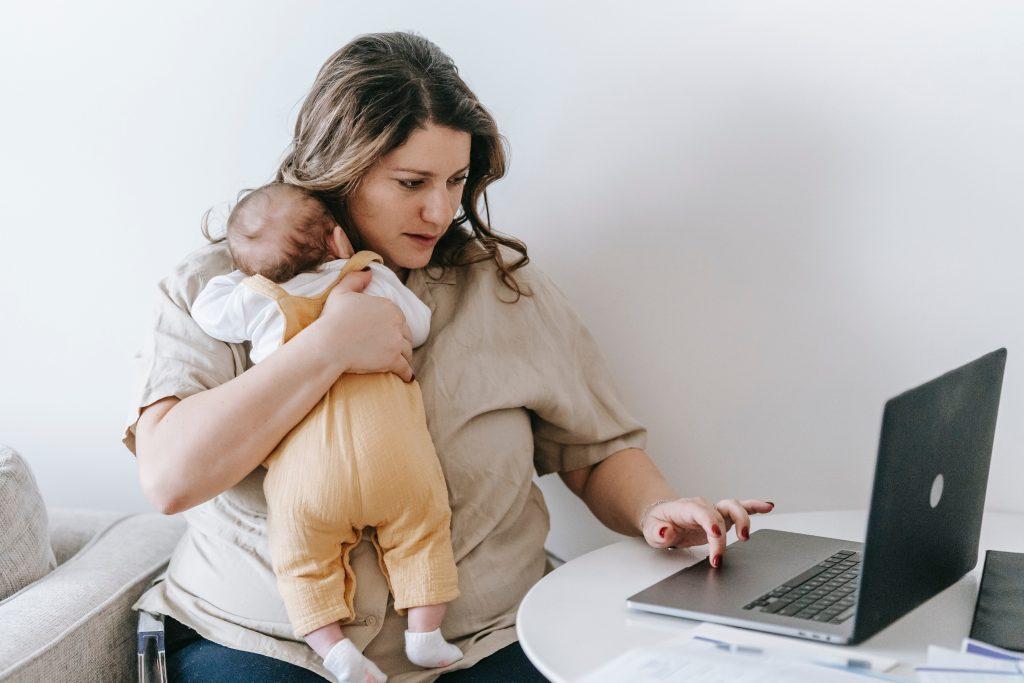
Maternity Leave :: How Valued (or Not) is Child Bearing?
As I prepare for my third baby, I am also preparing for my third maternity leave.
Each of my birth and postpartum experiences have been different.
My first child
- Completely unpaid leave
- Had 11 weeks off for maternity leave
- Went back to work for half-days until my daughter started daycare at 15 weeks
My second child
- Completely unpaid leave
- Only took 6 weeks off in order to start a new job
- Went back to work 6 weeks postpartum…my son was the youngest age allowed at daycare–6 weeks exactly
My third (upcoming plan)
- Partially paid leave
- Taking 9 weeks of leave
- Sending my daughter to daycare at 8 weeks to allow 1 week of transition for both of us
As I began to think about the options before me, the costs involved, and the budget to be planned, I wanted to hear from other moms and what their experiences have been. Using handy dandy Instagram, I put out a few polls to gain some insight into how companies handle maternity leave, the salary range of parents who carry the weight of zero-pay maternity policies, and some others.
Here are the results from the 60(ish) respondents.
What is your company’s maternity leave policy?
Fully paid (21%)
Partially paid (31%)
No pay (48%)
How long do you/have you taken for maternity leave?
Less than 6 weeks (15%)
6-10 weeks (33%)
10-12 weeks (43%)
More than 12 weeks (10%)
Additional feedback from participants:
Not a parent, but I was shocked to learn my current employer doesn’t offer any formal paternal leave. I think it shows that even in organizations focused on inclusion, they miss the mark when different lived experiences aren’t represented. I really believe policies that support parents and caregivers is a DEI issue.
(In reference to zero pay) And I work for a church 🙃
Annual household income range
Less than $60,000 (7%)
$60,000-$100,000 (31%)
$100,000-$150,000 (34%)
$150,000+ (28%)
Monthly childcare costs
Less than $500/mo/child (10%)
$500-$700/child/mo (44%)
$700-$1,000/child/mo (35%)
Stay at home parent option (12%)
Additional feedback from participants: Much more. We have a full time nanny. Full disclosure, my parents partially subsidize this cost for us.
For parents who have suffered from pregnancy loss, were you given bereavement leave?
Yes (35%)
No (47%)
Had to use vacation days (18%)
Additional feedback: I had to take sick days.
My gut reaction: this is sad
The number of US residents who are under the age of 65 is declining. Specifically, the number of those under the age of 25 is also declining. What does this tell us?
People are having less babies than previous generations.
I support the choice for those who choose not to have children. What I find sad, though, are those who want to have a child/children but feel like they cannot because of the financial burden.
Families today are often viewed as a luxury item–something you can venture into once you have enough financial stability. The truth is, most of this country cannot afford to have unpaid leave, childcare as expensive (or more expensive) than their rent or mortgage, with a minimum wage still below $10.
We have to do better for families.
What is the monetary value of rearing children?
Our babies don’t stay babies. They grow up. They become friends. They are the future workforce. They are future saints and congressmen. Without the sacrifice (yes, it’s a freaking sacrifice) women make with their bodies, brains, and time to have kids, our society would cease to exist.
It’s time our employers and our country see that procreation is an investment for families, and they can jump on board. We should be talking about employees holistically, not solely for the labor hours they provide.
It’s not all bad
The last question I asked in my survey was for participants to tell me their blessings and burdens. Acknowledging the challenge and the beauty of anything is important, especially when it comes to our little humans.
Burden: ALL the toddler emotions, and losing your sense of self in parenthood.
Blessing: Watching them do anything for the first time and seeing their sibling love grow.
Burden: Loss of “me” time.
Blessing: Gaining of others time, dependency, and love.
Burden: Messy home
Blessing: Watching my children take what I teach them and put it into action.
Burden: The constant worry, sheer exhaustion, and being needed ALL THE TIME.
Blessing: The giggles, the handholds, the snuggles telling you that you’re their person.
Burden: Trying to provide a childhood when the world wants them to grow up so fast. People expect kids to be calm and quiet, and that just isn’t our reality.
Blessing: Seeing their imaginations and creativity and how much they love each other.


















